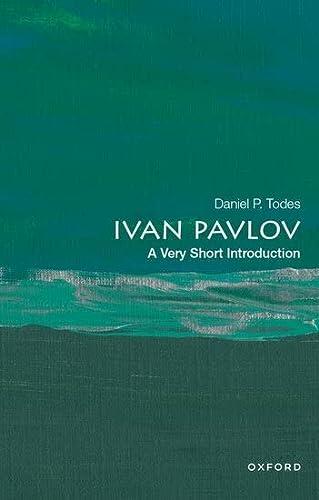
Ivan Pavlov: A Very Short Introduction
Ancora nessuna valutazione
Romance
Biography
Action & Adventure
+3
more
Formato
Brossura
Pagine
160
Lingua
Inglese
Pubblicato
Nov 18, 2022
Editore
Oxford University Press
ISBN-10
0190906693
ISBN-13
9780190906696
Descrizione
Daniel P. Todes takes readers on a concise yet illuminating journey through the life and contributions of Ivan Pavlov, the renowned Russian physiologist famed for his groundbreaking research in classical conditioning. This introduction reveals Pavlov's early fascination with the natural world and how it propelled him into a life dedicated to scientific inquiry. Through engaging narrative, Todes paints a vivid picture of Pavlov's rigorous experiments and the impact they had on psychology and behavioral science.
The book delves into Pavlov's experimental methods, particularly his work with dogs, which led to the discovery of conditioned reflexes. Todes explains how these findings not only transformed the landscape of psychology but also drew connections to broader themes in human behavior and the nature of learning. The intricate details of Pavlov's experiments highlight his innovative spirit and meticulous attention to scientific processes.
Beyond the laboratory, Todes contextualizes Pavlov's legacy within the social and political atmosphere of his time, illustrating how his work transcended the confines of science. This exploration ultimately underscores the lasting influence Pavlov has had, not only on psychology but also on various fields such as education and neurobiology. It's a compelling read for anyone interested in the foundations of behavioral science and the life of a pivotal figure whose impact reverberates to this day.
The book delves into Pavlov's experimental methods, particularly his work with dogs, which led to the discovery of conditioned reflexes. Todes explains how these findings not only transformed the landscape of psychology but also drew connections to broader themes in human behavior and the nature of learning. The intricate details of Pavlov's experiments highlight his innovative spirit and meticulous attention to scientific processes.
Beyond the laboratory, Todes contextualizes Pavlov's legacy within the social and political atmosphere of his time, illustrating how his work transcended the confines of science. This exploration ultimately underscores the lasting influence Pavlov has had, not only on psychology but also on various fields such as education and neurobiology. It's a compelling read for anyone interested in the foundations of behavioral science and the life of a pivotal figure whose impact reverberates to this day.
Recensioni
Nessuna recensione ancora
Sii il primo a recensire questo libro e condividi i tuoi pensieri
Aggiungi Prima RecensioneRegistro di Lettura
Nessun registro di lettura trovato
Inizia a tracciare i tuoi progressi di lettura per vedere i registri qui
Aggiungi il tuo primo registro di letturaNote
Registro delle transazioni
Nessun registro delle transazioni trovato
Inizia a tracciare le tue transazioni di libri per vedere i registri qui
Aggiungi il tuo primo registro di transazione